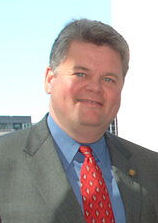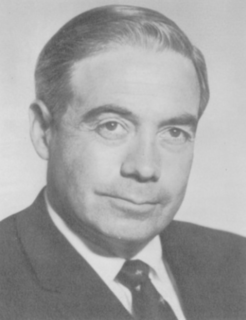A Quote by Annalee Newitz
Using predictive models from engineering and public health, designers will plan safer, healthier cities that could allow us to survive natural disasters, pandemics, and even a radiation calamity that drives us underground.
Related Quotes
There's instinctual discomfort about using evidence of past immunity as a factor for decisions about health, work or even questions like whether it's safe to visit someone in a nursing home. But there are ways to deploy immunity information to help us understand our own health status and keep us safer from Covid, without surrendering privacy.
The opportunities of the twenty-first century make those of us who care about cities feel like kids in a candy store: How will cities survive and lead the way in the transformation required to combat global warming? Resilient Cities gives us a road map for this epic journey upon which we are embarking.
I think we have powerful role-models among us in the American West. Certainly the Hopis, a timeless civilization that understands sustainability and what that means about living in harmony, in tandem with the natural world. We have much to learn from them, and they will survive us, I feel certain about that.
If we put the emphasis upon the right things, if we live the life that is worth while and then fail, we will survive all disasters, we will out-live all misfortune. We should be so well balanced and symmetrical, that nothing which could ever happen could throw us off our center, so that no matter what misfortune should overtake us, there would still be a whole magnificent man or woman left after being stripped of everything else.
Let us pause before the Child of Bethlehem. Let us allow our hearts to be touched, let us allow ourselves to be warmed by the tenderness of God; we need his caress. God is full of love: to him be praise and glory forever! God is peace: let us ask him to help us to be peacemakers each day, in our life, in our families, in our cities and nations, in the whole world. Let us allow ourselves to be moved by God's goodness.
He comes to us in the brokenness of our health, in the shipwreck of our family lives, in the loss of all possible peace of mind, even in the very thick of our sins. He saves us in our disasters, not from them. He emphatically does not promise to meet only the odd winner of the self-improvement lottery. He meets us all in our endless and inescapable losing.
The storyteller is deep inside everyone of us. The story-maker is always with us. Let us suppose our world is attacked by war, by the horrors that we all of us easily imagine. Let us suppose floods wash through our cities, the seas rise . . . but the storyteller will be there, for it is our imaginations which shape us, keep us, create us - for good and for ill. It is our stories that will recreate us, when we are torn, hurt, even destroyed. It is the storyteller, the dream-maker, the myth-maker, that is our phoenix, that represents us at our best, and at our most creative.

































